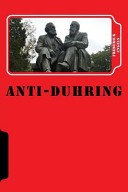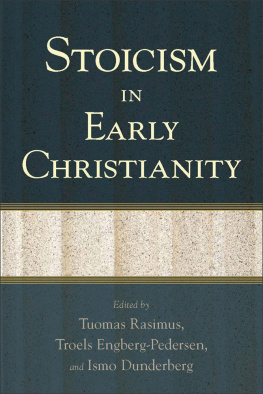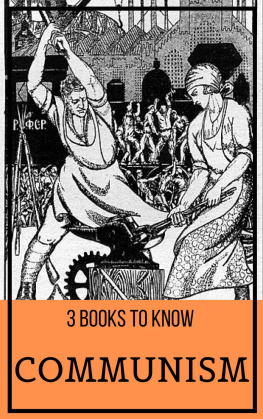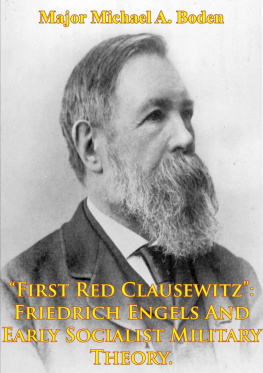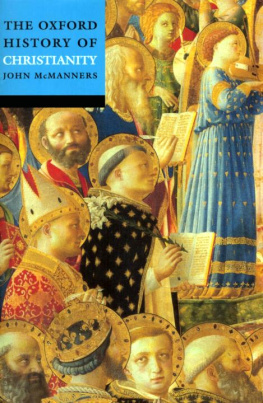Engels - On the History of Early Christianity
Here you can read online Engels - On the History of Early Christianity full text of the book (entire story) in english for free. Download pdf and epub, get meaning, cover and reviews about this ebook. publisher: Marxists Internet Archive, genre: Religion. Description of the work, (preface) as well as reviews are available. Best literature library LitArk.com created for fans of good reading and offers a wide selection of genres:
Romance novel
Science fiction
Adventure
Detective
Science
History
Home and family
Prose
Art
Politics
Computer
Non-fiction
Religion
Business
Children
Humor
Choose a favorite category and find really read worthwhile books. Enjoy immersion in the world of imagination, feel the emotions of the characters or learn something new for yourself, make an fascinating discovery.

On the History of Early Christianity: summary, description and annotation
We offer to read an annotation, description, summary or preface (depends on what the author of the book "On the History of Early Christianity" wrote himself). If you haven't found the necessary information about the book — write in the comments, we will try to find it.
On the History of Early Christianity — read online for free the complete book (whole text) full work
Below is the text of the book, divided by pages. System saving the place of the last page read, allows you to conveniently read the book "On the History of Early Christianity" online for free, without having to search again every time where you left off. Put a bookmark, and you can go to the page where you finished reading at any time.
Font size:
Interval:
Bookmark:
On the History of Early Christianity
Frederick Engels
First Published : In Die Neue Zeit , 189495.
Translated : by the Institute of Marxism-Leninism, 1957 from the newspaper.
Transcribed : by director@marx.org.
Proofread : Alvaro Miranda (August 2020).
Ebook by : Eleanor
HTML :
The history of early Christianity has notable points of resemblance with the modern working-class movement. Like the latter, Christianity was originally a movement of oppressed people: it first appeared as the religion of slaves and emancipated slaves, of poor people deprived of all rights, of peoples subjugated or dispersed by Rome. Both Christianity and the workers socialism preach forthcoming salvation from bondage and misery; Christianity places this salvation in a life beyond, after death, in heaven; socialism places it in this world, in a transformation of society. Both are persecuted and baited, their adherents are despised and made the objects of exclusive laws, the former as enemies of the human race, the latter as enemies of the state, enemies of religion, the family, social order. And in spite of all persecution, nay, even spurred on by it, they forge victoriously, irresistibly ahead. Three hundred years after its appearance Christianity was the recognized state religion in the Roman World Empire, and in barely sixty years socialism has won itself a position which makes its victory absolutely certain.
If, therefore, Prof. Anton Menger wonders in his Right to the Full Product of Labour why, with the enormous concentration of landownership under the Roman emperors and the boundless sufferings of the working class of the time, which was composed almost exclusively of slaves, socialism did not follow the overthrow of the Roman Empire in the West, it is because he cannot see that this socialism did in fact, as far as it was possible at the time, exist and even became dominant in Christianity.
Only this Christianity, as was bound to be the case in the historic conditions, did not want to accomplish the social transformation in this world, but beyond it, in heaven, in eternal life after death, in the impending millennium.
The parallel between the two historic phenomena forces itself upon our attention as early as the Middle Ages in the first risings of the oppressed peasants and particularly of the town plebeians. These risings, like all mass movements of the Middle Ages, were bound to wear the mask of religion and appeared as the restoration of early Christianity from spreading degeneration.
But behind the religious exaltation there was every time a very tangible worldly interest. This appeared most splendidly in the organization of the Bohemian Taborites under Jan ika, of glorious memory; but this trait pervades the whole of the Middle Ages until it gradually fades away after the German Peasant War to revive again with the workingmen Communists after 1830. The French revolutionary Communists, as also in particular Weitling and his supporters, referred to early Christianity long before Renans words:
If I wanted to give you an idea of the early Christian communities I would tell you to look at a local section of the International Working Mens Association.
This French man of letters, who by mutilating German criticism of the Bible in a manner unprecedented even in modern journalism composed the novel on church history Origines du Christianisme , did not know himself how much truth there was in the words just quoted. I should like to see the old International who can read, for example, the so-called Second Epistle of Paul to the Corinthians without old-wounds re-opening, at least in one respect. The whole epistle, from chapter eight onwards, echoes the eternal, and oh! so well-known complaint: les cotisations ne rentrent pas contributions are not coming in! How many of the most zealous propagandists of the sixties would sympathizingly squeeze the hand of the author of that epistle, whoever he may be, and whisper: So it was like that with you too! We too Corinthians were legion in our Association can sing a song about contributions not coming in but tantalizing us as they floated elusively before our eyes. They were the famous millions of the International!
One of our best sources on the first Christians is Lucian of Samosata, the Voltaire of classic antiquity, who was equally sceptic towards every kind of religious superstition and therefore bad neither pagan-religious nor political grounds to treat the Christians otherwise than as some other kind of religious community. On the contrary, he mocked them all for their superstition, those who prayed to Jupiter no less than those who prayed to Christ; from his shallow rationalistic point of view one sort of superstition was as stupid as the other. This in any case impartial witness relates among other things the life-story of a certain adventurous Peregrinus, Proteus by name, from Parium in Hellespontus. When a youth, this Peregrinus made his dbut in Armenia by committing fornication. He was caught in the act and lynched according to the custom of the country. He was fortunate enough to escape and after strangling his father in Parium he had to flee.
And so it happened I quote from Schotts translation that he also came to hear of the astonishing learning of the Christians, with whose priests and scribes he had cultivated intercourse in Palestine. He made such progress in a short time that his teachers were like children compared with him. He became a prophet, an elder, a master of the synagogue, in a word, all in everything. He interpreted their writings and himself wrote a great number of works, so that finally people saw in him a superior being, let him lay down laws for them and made him their overseer (bishop) .... On that ground ( i.e. , because he was a Christian) Proteus was at length arrested by the authorities and thrown into prison ... As he thus lay in chains, the Christians, who saw in his capture a great misfortune, made all possible attempts to free him. But they did not succeed. Then they administered to him in all possible ways with the greatest solicitude. As early as daybreak one could see aged mothers, widows and young orphans crowding at the door of his prison; the most prominent among the Christians even bribed the warders and spent whole nights with him; they took their meals with them and read their holy books in his presence; briefly, the beloved Peregrinus (he still went by that name) was no less to them than a new Socrates. Envoys of Christian communities came to him even from towns in Asia Minor to lend him a helping hand, to console him and to testify in his favour in court. It is unbelievable how quick these people are to act whenever it is a question of their community; they immediately spare neither exertion nor expense. And thus from all sides money then poured in to Peregrinus so that his imprisonment became for him a source of great income. For the poor people persuaded themselves that they were immortal in body and in soul and that they would live for all eternity; that was why they scorned death and many of them even voluntarily written by his sacrificed their lives. Then their most prominent lawgiver convinced them that they would all be brothers one to another once they were converted, i.e. , renounced the Greek gods, professed faith in the crucified sophist and lived according to his prescriptions. That is why they despise all material goods without distinction and own them in common doctrines which they have accepted in good faith, without demonstration or proof. And when a skilful imposter who knows how to make clever use of circumstances comes to them he can manage to get rich in a short time and laugh up his sleeve over these simpletons. For the rest, Peregrinus was set free by him who was then prefect of Syria.
Then, after a few more adventures,
Next pageFont size:
Interval:
Bookmark:
Similar books «On the History of Early Christianity»
Look at similar books to On the History of Early Christianity. We have selected literature similar in name and meaning in the hope of providing readers with more options to find new, interesting, not yet read works.
Discussion, reviews of the book On the History of Early Christianity and just readers' own opinions. Leave your comments, write what you think about the work, its meaning or the main characters. Specify what exactly you liked and what you didn't like, and why you think so.

